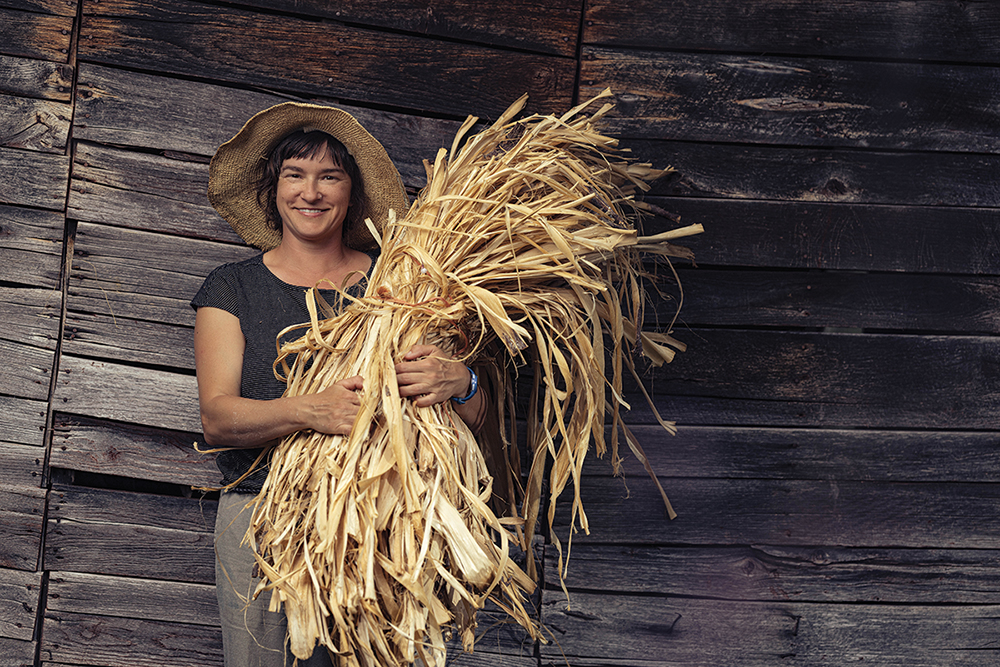
Photo by Jack Robert
When Alyssa Sacora was growing up in Virginia’s Shenandoah Valley, nature was an ally and not something to be held at bay. At a time when sustainability was a given, her parents and grandparents took only what they needed to build houses, plant gardens, make clothes. “I come from a line of folks who tended the land, and used available materials for creative exploration and necessity,” says Sacora, who has carried that respect for the natural world with her to Fairview, where she created her art studio and workshop space, The Patchwork Underground, on several acres of land she tends with her husband Adam. “I want to improve the health of this place,” she says of her land and gardens, “rather than just sustain it.”
Sacora’s area of interest is fiber-based arts and crafts, from unique framed paper quilts to dye-making, fabrics, basketry, papermaking, and bookbinding, almost all of it derived from plant fibers she harvests herself or from repurposed clothing she gathers. “I make associations and build a network in my mind of plants that are materials for specific crafts,” she explains. “I explore and combine plants, processes, and mediums in ways that nod to traditional use and that take advantage of what’s locally available.”
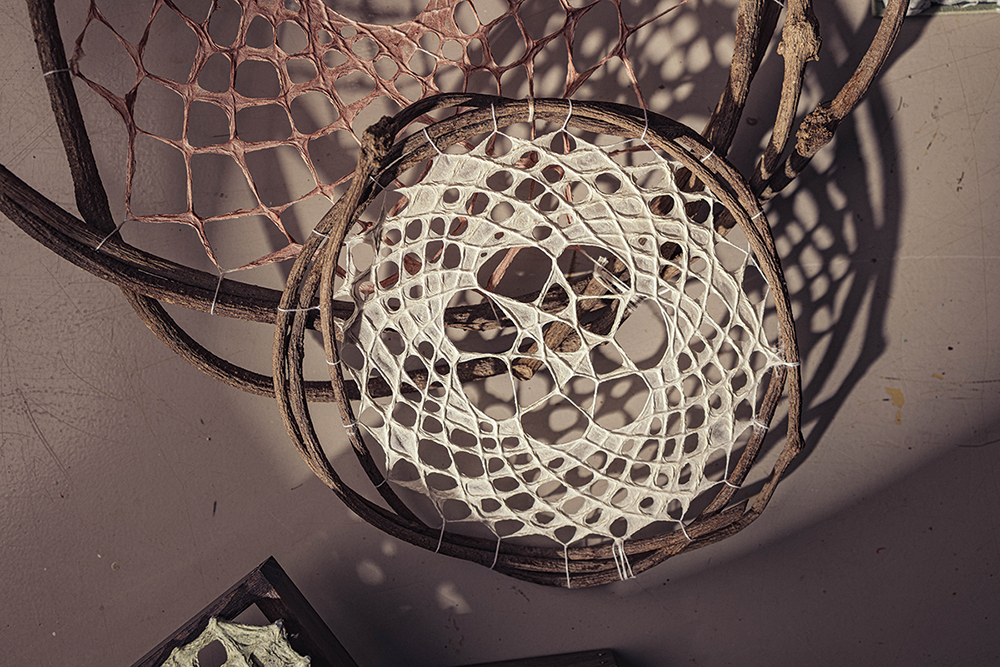
Photo by Jack Robert
Kudzu is certainly an abundant source material for Sacora’s work, along with iris leaves from her garden, okra stems she gathers from local farms and uses in making paper, and bark harvested from a managed group of “tulip trees” (poplar) for baskets. Worn-out linens and clothing figure in her papermaking. “Paper was invented in China around 105 BCE and was made from rags,” she notes. “So my incorporation of old linens ties me to the first papermakers and the papermakers of historical Europe, where my ancestors are from.”
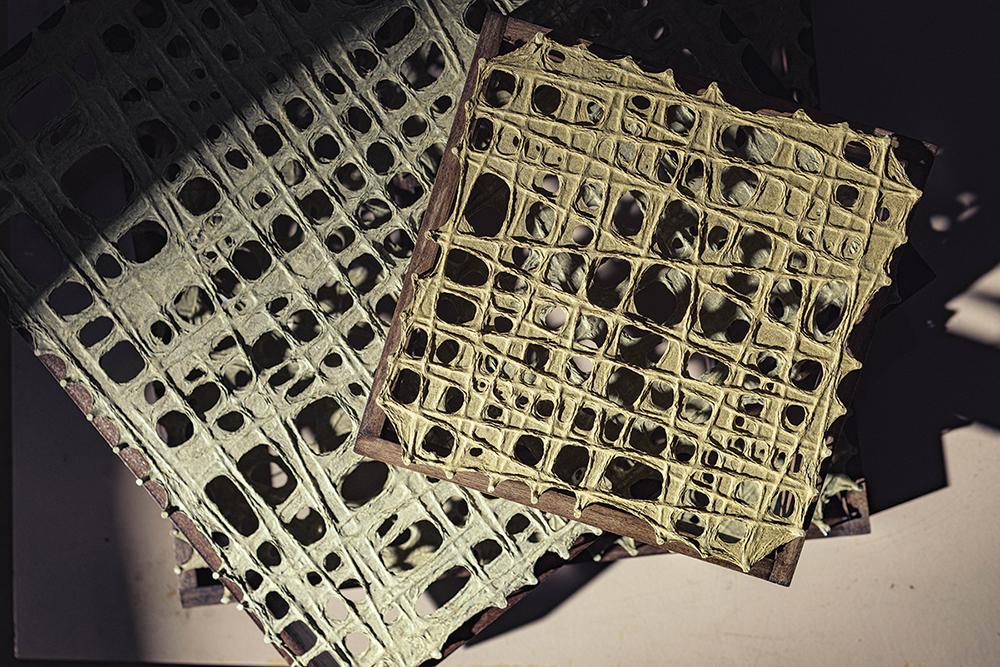
Photo by Jack Robert
The growing, the harvesting, and the making are all part of Sacora’s holistic approach. “I live my life with an awareness of the interconnectedness of all beings,” she says. “I can buy materials from halfway around the world and have zero relationship with the plants, the people who grow and harvest them, and the transportation that gets them to me. Or I can tend the soil in my garden, harvest the iris leaves, and walk them to the drying rack. Those acts support the plant and the soil microbes, and my own health and well-being.”
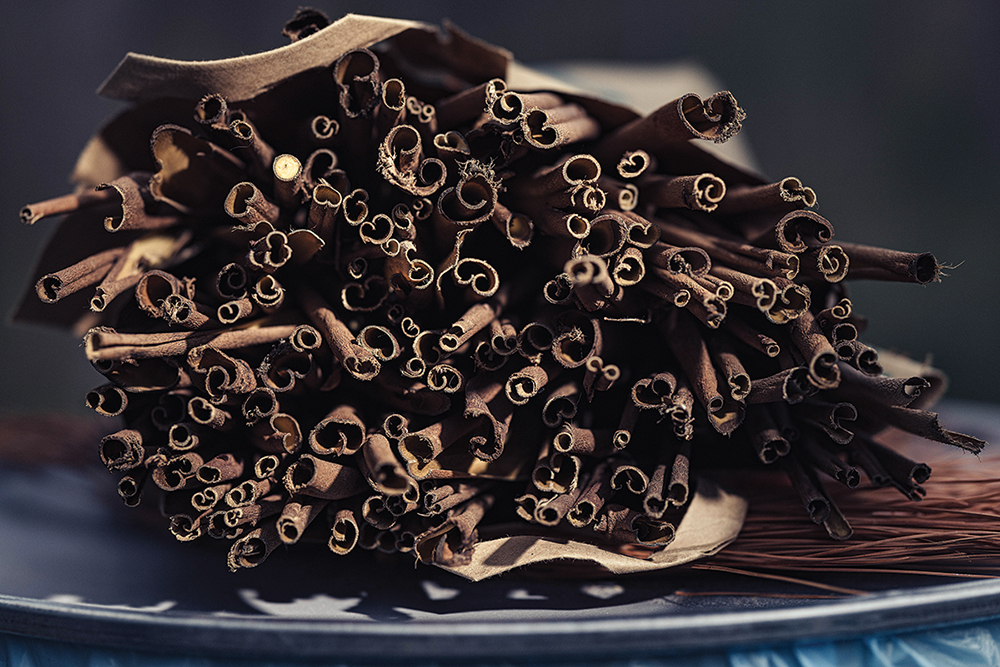
Photo by Jack Robert
Sacora’s workshops at The Patchwork Underground and other locations carry that message forward. “I want folks to have an immersive workshop experience surrounded by plants and the elements, and I want to provide an opportunity for folks to explore craft in a supportive environment that connects them to the materials they’re working with,” she says. “Sharing the land and my skills with others is an essential piece of how I contribute to shifting modern culture to be more aware of community wellbeing.”
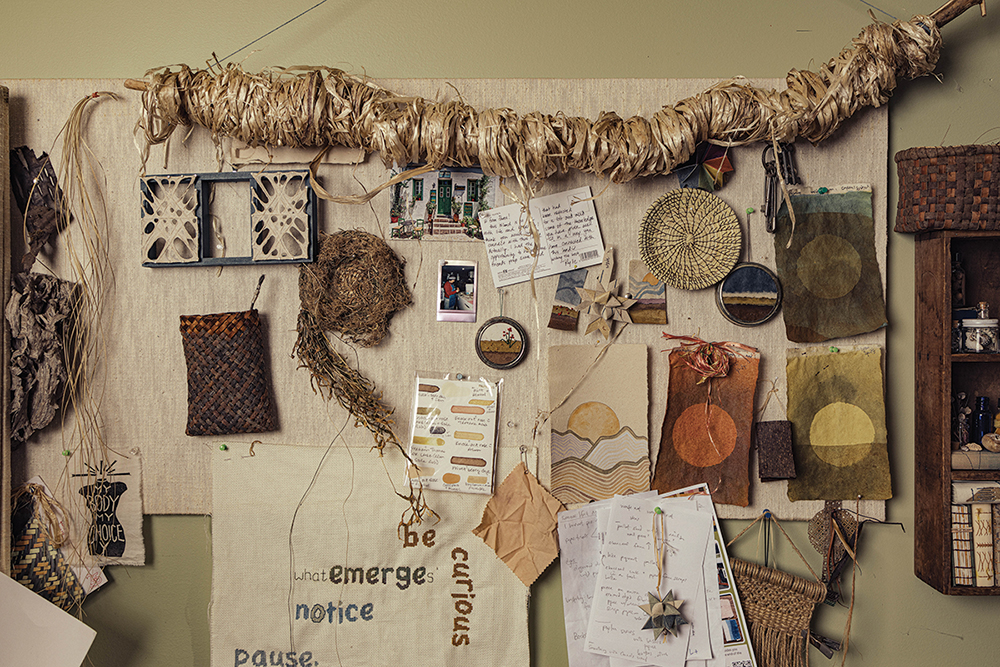
The artist keeps busy with projects on and off the farm.
Photo by Jack Robert
Alyssa Sacora, The Patchwork Underground, Fairview; see thepatchworkunderground.com for a schedule of on-site workshops. The artist’s paper quilts can be found at Art Garden AVL (Riverview Station in the River Arts District, 191 Lyman St. #316, artgardenavl.com) and at Flow Gallery (14 Main St., Marshall, flowmarshall.com). Sacora will exhibit at Flow’s summer group show Centered, running through Saturday, July 27. The artist will teach a summer workshop at Warren Wilson College,“Fast Fashion Revamp: Making a Journal Out of Old Clothes,” Monday, July 22 through Friday, July 26, as part of the school’s Mountain Institute for Lifelong Learning (mountaininstitute.warren-wilson.edu). She’ll also lead a workshop, “Paper Making with Invasive Species,” at the NC Arboretum on Saturday, Sept. 21 (ncarboretum.org).